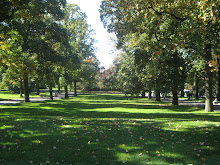
Denver had achieved what few metro regions can: a transportation plan and buy in for increased taxes to build that plan. Most know regional transportation planning is extremely difficult when you are trying to get all the different players to cooperate and then agree on a way to pay for. Unfortunately the down turn in the economy has basically stalled the entire project and some lines now might never get built.
IN 2004 Denver became a public-transport planner’s dream. The sprawling western metropolis approved a $4.7 billion project, known as FasTracks, which aimed to add six new light and commuter railway lines along with 18 miles (29km) of bus lanes across the metropolitan area, all to be built by 2017. Thirty-two regional mayors backed the plan and residents agreed to help pay for it with a 0.4% sales tax, topped up with federal grant money. At the time, John Hickenlooper, Denver’s mayor, said that “the whole community came together in the region at a level that we’ve never seen before.”Nerves are starting to fray. Critics argue that RTD’s revenue projections were flawed and that it lacks the capacity to build several lines at once. Towns and businesses north of Denver are angry that a northbound rail line is scheduled to be one of the last completed, arguing that it may never be built even though their residents pay an equal share of the sales tax.
Like many western cities, Denver is in desperate need of more public transport. Its metropolitan area has grown by half a million residents since 2000, and the population is predicted to increase from 2.7m in 2005 to 4.3m by 2035. Years of highway-driven sprawl have stretched the city and its suburbs across more than 700 square miles (up from 530 as recently as 1995), meaning that few people live close to work. The average commute is expected almost to double by 2035, adding to the time wasted snarled in traffic.
We need to find new ways to pay for transit other than our local tax base. In difficult times, such as these, when transit improvements are usually needed the most, cities are barely getting by. Let's hope that the Denver region can think outside the box and find other sources of capital.




No comments:
Post a Comment